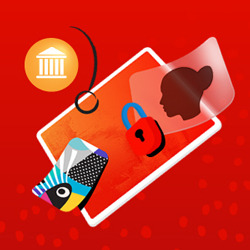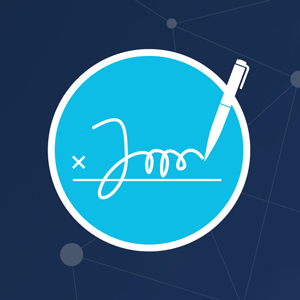Adobe Blogs

6 Service Delivery Pillars Government Should Prioritize for 2025 and Beyond
January 30, 2025
Today, government agencies are balancing new opportunities and challenges, from evolving mandates and modest IT budget increases to greater access to emerging technologies and heightened scrutiny of government efficiency. At the same time, citizen expectations continue to rise.
Read this blog post to learn about six areas agencies should strategically invest in to help them enhance service delivery.

How Adobe Supports Compliance with ADA Web Accessibility Standards
November 19, 2024
An April 2024 ruling by the Department of Justice mandates public entities conform to specific accessibility guidelines with their web and mobile application offerings. This update highlights the necessity for government organizations to address various deficiencies, such as lack of alternative text for images, inadequate color contrast, and inaccessible online forms.
Adobe Experience Manager offers built-in tools for accessibility compliance so agencies can seamlessly meet necessary standards. To ensure that your agency is compliant, explore this blog post to learn more about the requirements outlined in the DOJ ruling and the accessibility features of Adobe solutions.

Embracing eSignatures: How the SSA is Modernizing Document Processing in the Digital Age
October 30, 2024
Along with digital transformation reshaping the public and private sectors, the Social Security Administration (SSA) is modernizing its mail processing. With millions relying on the SSA for its services, the agency faces a substantial paperwork load. To tackle this, the SSA is adopting eSignatures to streamline operations and increase efficiency.
Read more>>

Adobe Digital Government Index Results Shine Light on US States’ Need for Personalization
October 21, 2024
Government agencies must ensure their websites offer inclusive access to information and services for all individuals, regardless of disability, location, income, language proficiency, or available technology. To support this effort, Adobe created the annual Digital Government Index, which examines the progress of state governments in digital service transformation and provides insights on how they can enhance the quality of their digital experiences. Read this blog post to find out more about 2024’s results.
Read more>>

Transforming Public Sector Efficiency: A Two-Pronged Approach to Modernization
October 8, 2024
This blog post discusses the ongoing modernization of government agencies in response to the increasing demand for digital governance. It emphasizes the importance of equipping government employees with advanced tools and fostering a collaborative work environment to enhance internal operations and improve citizen experiences. The piece highlights the need for user-centered design in government digital services, ensuring they are intuitive and responsive to public needs. By streamlining outdated processes, increasing content delivery speed, and focusing on strategic work management, agencies can not only enhance efficiency but also build stronger relationships with citizens, ultimately fulfilling their missions in a digital-first landscape.
Read more>>

Creating a Unified eLearning Environment to Deliver a Comprehensive Educational Experience
September 17, 2024
This blog post explores the essential elements of a unified eLearning environment, emphasizing the importance of content creation, delivery, and tracking. Readers will learn how Adobe's integrated tools—like Adobe Captivate, Adobe Connect, and Adobe Learning Manager—facilitate interactive content, AI-driven virtual classrooms, and seamless blended learning. Additionally, the challenges of managing an LMS while showcasing Adobe Learning Manager's features simplify course management and enhance the learning experience.
Read more>>

Seamlessly Enhance Accessibility in CX Through Communication
July 8, 2024
To provide comprehensive, seamless and fulfilling customer experience (CX), agencies must listen to customer feedback. Part of the Federal Government’s current CX initiatives, inspired by the President’s Management Agenda Executive Order Transforming Federal Customer Experience and Service Delivery to Rebuild Trust in Government and 21st Century Integrated Digital Experience Act (IDEA), focuses on improving the digital experience of Government customers. Agencies with public-facing services that were designated as High-Impact Service Providers (HISPs) follow the Office of Management and Budget (OMB)’s guidance to move services online. By highlighting customer feedback and utilizing technology to improve service delivery, agencies can make strides to improve their CX.
Read more>>

Enabling the Mobile Workforce With Secure Forms and Electronic Signatures
May 31, 2024
In this era of a largely remote and globally distributed workforce, where most workers want to be productive wherever they are — and on any device — it’s crucial to secure every endpoint from any threat that could compromise the security, prosperity, and integrity of an organization and its critical infrastructure. This is particularly true for governments and regulated industries.
Read more>>

Enhancing Government Creative Teams with Adobe Creative Cloud
May 21, 2024
As government agencies continue to modernize their workflows, the need for advanced creative tools becomes increasingly paramount. Adobe Creative Cloud (CC) offers a suite of applications that can revolutionize how government creative teams operate. This blog will delve into the latest features in Adobe CC applications and how they can benefit government creative teams, enhancing productivity, creativity, and collaboration.
Read more>>
Planes, trains, and automobiles — how the Port Authority transformed its digital operations
February 28, 2024
With the management of one of the world's busiest transportation and trade infrastructure assets, the Port Authority of New York and New Jersey were experiencing difficulties communicating important information to millions of customers. This challenge increased during the height of the COVID-19 pandemic when essential workers were relying on public transportation even more heavily.
Read this blog post to learn how they utilized Adobe Experience Manager to help streamline communications.
Governments are bridging the digital divide to create equitable digital experiences
February 5, 2024
Rapid advancements in digitization have taken our world by storm. It’s transforming entire industries and reshaping the ways we access key services and information to make experiences simpler and more convenient. However, that’s not the case for everyone. The digital divide — the unequal access to the digital tools and skillsets needed to participate in democracy, society, and the economy — is an issue that has commanded the attention of policymakers, NGOs, tech companies, and customers worldwide. In the public sector specifically, the onus falls on governments to create equitable digital experiences for all.

Adobe Express: The Content Creation Powerhouse
November 16, 2023
Adobe Max 2023 has finally arrived, and with it came a slew of intuitive new features and software options. As expected, Adobe’s primary focus this year was on its powerful AI innovations and tools. Unexpectedly however, Adobe Express, an application which previously was focused on social media content creation has received an enormous upgrade. So, let’s talk about these exciting new features and why it’s exciting for the government space.
Read more>>

Empowering Citizens: The Next Frontier in Government Service Delivery
October 17, 2023
The ongoing pandemic has affected every aspect of our day-to-day business operations, which have mostly transitioned across the board from manual, in person operations to complete digital ones. Currently, the Federal Government’s nationwide operating status remains “open with maximum telework flexibilities to all current telework eligible employees, pursuant to direction from agency heads.” Many federal, state, and local governments have taken steps during the pandemic to allow greater workforce autonomy, including the Department of Defense (DOD).
Read more>>
Transforming the citizen digital experience with content velocity and generative AI
August 14, 2023
Learn about the state of digital government experiences and how content velocity can help unlock the content lifecycle and close the gap between the demand for digital government services and the challenges agencies face in meeting those needs.

Digital Signature Use Continues Expanding, Along with Opportunities to Make Day-to-Day Processes Easier
July 14, 2023
Check out this blog to read more about how different agencies are using digital signature tools to enhance digital modernization and improve public experiences.
Read more>>
Government talent — what’s coming and how to prepare
April 10, 2023
Learn how government agencies are addressing the oncoming talent shortage and how they can improve recruitment and onboarding efforts to attract a diverse set of top talent.

The Advantage of Electronic Signature Services
December 5, 2022
The modern workspace is constantly evolving to keep pace with customer demands. Primarily, the most valuable asset a team may have at its disposal is time. Efficiency the word that keeps organizations running, and the tools a team employs dictates how effective those processes are. When the conversation turns to contracts and signatures, there is only one real solution for the modern business, that being the implementation of electronic signatures. How much more value could electronic signature services be for your team? Let’s discuss the inherent value of such a system.
Read more>>
Moving beyond the basics of digital government with personalization
September 21, 2022
In a recent study by Deloitte Digital, 80% of Americans surveyed said they rely on digital methods to get government information about public services, yet 74% reported frustrations with their online experience. Moreover, 47% of respondents view government websites as more trustworthy than other public information sources. These statistics indicate that the time is now for agencies to invest in personalized digital experiences that put people first and help establish more trust in the public sector.

Personalized Digital Experiences in Government
August 23, 2022
President Trump made it a part of his President Management Agenda, and President Biden released an Executive Order mandating a transformation of the “Federal Customer Experience.” Further policies, including the 21st Century IDEA and the IT Modernization Act, provide additional sources of funding and policy to help governments address these rising customer needs, and while they have been around for a few years, they are still required to be fully implemented. Agencies need to take advantage of this momentum to continue improving citizen experiences and “recommit to being ‘of the people, by the people, [and] for the people” in order to solve the complex 21st century challenges our Nation faces.”
Read more>>

Adobe reaches public sector milestone with FedRAMP Moderate authorization for Adobe Acrobat Sign for Government
June 06, 2022
We are increasingly connected through digital experiences and interactions, which is why it’s so important for organizations to understand how they can meet the unique needs of users and help build trust. This is especially true for people accessing government services, which can be some of the most critical services that people need to use. For those serving in government, this is the time to transition from reacting to the pandemic to building new experiences that better support workers and people in this new environment. Agencies need solutions that deliver short-term benefits while laying the groundwork for scalable and sustainable progress.
Read more>>

The Technology Modernization Fund’s Projects for Zero Trust Innovation
March 24, 2022
In the wake of the 2019 pandemic and its long-lasting effects, most agencies have begun adapting new security standards to meet changing needs. The 2017 government action plan, The Technology Modernization Fund (TMF), aims to aid federal agencies with funding in order to accelerate the thorough completion of projects. While the TMF did not directly award grants for pandemic relief, many of its cybersecurity projects meet critical needs that were enhanced by the pandemic and working from home.
Read more>>

Creative Projects and Compatible File Types Built for Government
March 24, 2022
When designing creative projects for Government entities, there are many angles that need to be taken into consideration to ensure that your creative work can be accessed and distributed throughout as many channels as possible, with as few restrictions as possible. Depending on the type of work, this can range from closed captioning on promotional videos, to accessibility on 508 compliant documents. In the proper context, ensuring that your work is compatible for distribution can be even more important than the project itself.
Read more>>

Modernizing Cybersecurity & MultiCloud Services with TMF
March 18, 202
The Technology Modernization Fund (TMF) is an action plan created as part of the 2017 Modernizing Government Act. The goal is to have a funding vehicle that would aid agencies in accelerating project completion. This is enacted via a loan which will be repaid based on individual project agreements. In order to implement and perfect technology modernization, the Technology Modernization Board (TMB) prioritizes projects that engage several agencies at once, address security gaps, and improve the public’s access to services.
Read more>>

Continuing Digital Transformation Initiatives to Better Serve Constituents and Employees
October 1, 2021
As has been felt and said too many times to count by now, the COVID pandemic has changed the way we live, work, and experience our daily lives. Whether it’s an employee working remotely, or a constituent requiring information or services, digital experiences became our safe, sterile, socially distant means of interacting, and trends that seemed years away, at best, became reality overnight. Agencies across the U.S. began to lay, often in a matter of weeks, the digital foundations necessary to adapt. COVID landing pages, portals for testing and vaccine distribution, labor and health services, and communications with residents were all transformed to provide a sense of certainty in a time without it.
Read more>>

Lasting Shifts in Secure Electronic Signature Usage Across the Government Sphere
June 28, 2021
While the workforce has diversified across generations, the way people work hasn’t kept pace. Why do we expect the same office-based 9-5 arrangement to work for the vast majority of us? According to a recent study of 1,583 U.S. white-collar employees commissioned by Werk, 96% of the workforce reports needing some form of flexibility at work and one in two employees indicate they would leave their job for a more flexible alternative.
Read more>>

Communication and Creativity While Working Remote
March 26, 2021
While the workforce has diversified across generations, the way people work hasn’t kept pace. Why do we expect the same office-based 9-5 arrangement to work for the vast majority of us? According to a recent study of 1,583 U.S. white-collar employees commissioned by Werk, 96% of the workforce reports needing some form of flexibility at work and one in two employees indicate they would leave their job for a more flexible alternative.
Read more>>

Technology Trends in 2021: Workflow Automation
February 3, 2021
Workflow automation can be defined as a set of repeatable activities that lead up to a common output, a complete process. Figuring out what needs to be automated is really a process of understanding the organization’s procedures and automating them. It might be something simple like documents that must go through four or five different layers of approvals. Usually that’s accomplished by having someone send emails with the documents attached to each signer in turn. But, that’s a simple workflow to automate where an email goes to the first approver and then on to the next person in line—without an employee needing to do it manually.
Read more>>

Driving Cloud Computing and Telework Change
January 19, 2021
The Coronavirus pandemic has spurred noticeable changes in the way individuals within most organizations collaborate with colleagues, interface with the public, and get their day-to-day business done. Many have transitioned to telework, brought on virtual training platforms, and secured tools for managing or signing documents electronically. While employee safety certainly ramped up efforts to modernize, especially in the government sphere, the underlying push to modernize and adopt more cloud infrastructure continues in full force into the future.
Read more>>

Powering Opioid Outreach with Digital Marketing Platforms
September 20, 2018
The opioid epidemic is a human tragedy, one that is taking 116 lives daily in the United States. Deaths from opioid use and abuse are up among men and woman of all races and adults of nearly every age. This nationwide epidemic requires that treatment and recovery information be delivered in a coordinated and rapid-fire manner to reduce the number of people falling prey to addiction and help those in the throes of it.
Read more>>

